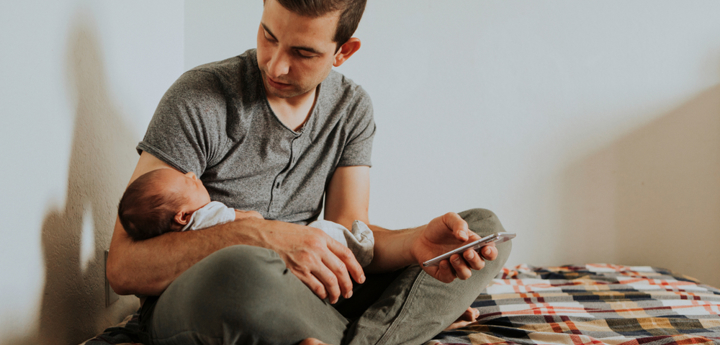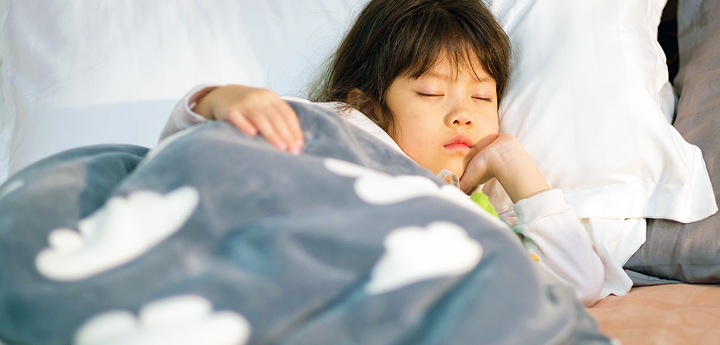Newborns and infants (0 to 1 year old)
Newborn babies need a lot of sleep. They can sleep between 8 to 18 hours. Most newborn babies will spend more time asleep than they are awake. Your baby will wake often during the night, so it's unlikely that your baby's sleep will fit in with your usual sleeping routine.
As your baby grows, they will need fewer night feeds and be able to sleep for longer stretches of time. Some babies will sleep for around 8 hours or even longer at night. By 4 months, they could be spending around twice as long sleeping at night as they do during the day.
Read our information on infant sleeping, keeping your sleeping baby safe or visit the Lullaby Trust.
Toddlers (1 to 2 years old)
Most toddlers make the move from their cot to a bed anywhere between 18 months to 3 years, but this will be different for every family. Many parents make the change when their toddler can climb out or if they get too big to sleep comfortably in their cot. You'll probably be able to tell when your toddler reaches this stage.
Sleep habits can be learned. It is important to introduce a bedtime routine as it teaches your child the order of events leading up to bedtime. You may also want to set up a regular naptime routine to help your child get ready for a rest. This can be a shorter version of the routine you use at night, such as reading a story or having a cuddle.
Read more about healthy sleep routines for toddlers.
If you have any concerns you can Call Us on 0300 029 50 50 or Text Us on 07520 649887.
Open Monday to Friday 9am to 5pm (excluding bank holidays).
Children (3 to 12 years old)
It is important to encourage your child to be active and spend some time outside. This will give them exposure to natural daylight which will help them to feel tired at the end of the day so they will have a more restful sleep.
Some children are scared of the dark, which can make it harder for your child to unwind and sleep. If your child is scared of the dark leaving the door ajar or using a nightlight may help. Try not to keep the main bedroom light on.
Nightmares are very common in children. Read more about nightmares.
Using electronic devices such as TVs, mobile phones, computers and tablets around bedtime can affect your child's sleep. It can impact the quality and length of their sleep.
Read more about health sleep routines for children.
Teenagers (13 to 18 years old)
It is well-known that teenagers want to stay up late and then struggle to get up in the morning. This is due to the puberty hormones shifting their body clocks and changing their sleep patterns. These hormonal changes can make them feel like they need to go to sleep and wake up 3-4 hours later than adults.
Teenagers need approximately 9-10 hours sleep at night. If they do not get enough sleep it can affect their mood, their ability to concentrate and learn, and their mental health.
Using electronic devices such as TVs, mobile phones, computers and tablets around bedtime can affect your child's sleep. It can impact the quality and length of their sleep.
Teenagers who put their smartphones down 1 hour before bed gain an extra 21 minutes sleep at night (1 hour 45 minutes over the school week).
Read more about healthy sleep routines for teenagers.




